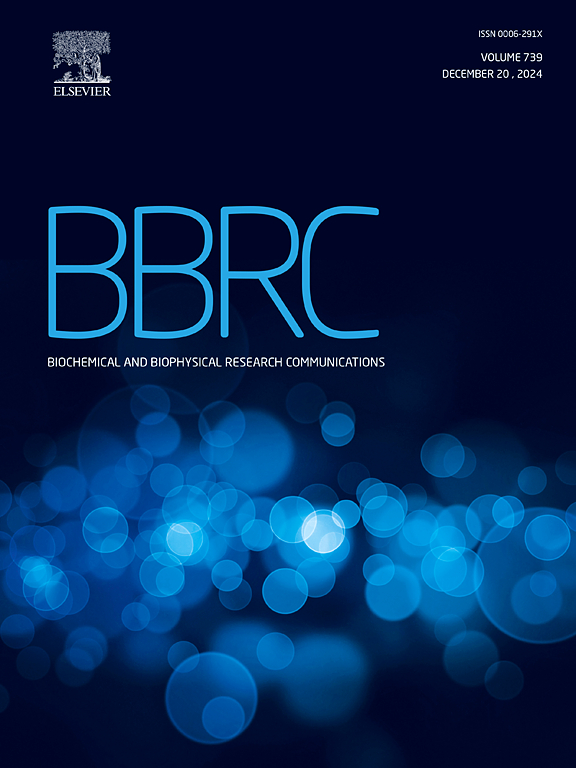花青素是喷托苷合成的强效抑制剂:抗氧化作用。
IF 2.2
3区 生物学
Q3 BIOCHEMISTRY & MOLECULAR BIOLOGY
Biochemical and biophysical research communications
Pub Date : 2024-11-15
DOI:10.1016/j.bbrc.2024.151007
引用次数: 0
摘要
喷托西啶(PEN)是一种高级糖化终产物(AGE),与多种老年相关疾病和精神分裂症有关。本研究旨在利用体外系统鉴定能抑制葡萄糖醛酸合成 PEN 的天然化合物。对 93 种天然化合物进行筛选后发现,有 47 种能使 PEN 合成减少 50%以上,其中 8 种的抑制率大于 80%。前五种抑制剂均为花青素,其中氯化矮牵牛素的效果最强,可抑制 PEN 合成约 90%。这些化合物直接抑制了 PEN 的合成,而不会降解或捕获合成的 PEN。氯化矮牵牛苷的 IC50 值比 AGE 抑制剂吡多胺的 IC50 值低约 85 倍。研究发现,这些化合物的抗氧化能力与其抑制 PEN 的效果之间存在相关性,这表明抗氧化特性可能有助于抑制机制的形成。这项研究为包括精神分裂症在内的与 PEN 积累有关的疾病提供了潜在的新治疗策略,并凸显了花青素在开发更安全的预防性干预措施方面的潜力。本文章由计算机程序翻译,如有差异,请以英文原文为准。
Anthocyanins as potent inhibitors of pentosidine synthesis: Antioxidant-mediated effects
Pentosidine (PEN), an advanced glycation end product (AGE), is associated with various age-related diseases and schizophrenia. This study aimed to identify the natural compounds that inhibit PEN synthesis from glucuronic acid using an in vitro system. A screening of 93 natural compounds revealed 47 that reduced PEN synthesis by > 50 %, with eight inhibiting it by > 80 %. The top five inhibitors were anthocyanins, with petunidin chloride showing the strongest effect, inhibiting PEN synthesis by approximately 90 %. These compounds directly inhibited PEN synthesis without degrading or capturing the synthesized PEN. Petunidin chloride had an IC50 value approximately 85 times lower than that of pyridoxamine, an AGE inhibitor. A correlation between the antioxidant capacity of the compounds and their PEN-inhibitory effects was observed, suggesting that antioxidant properties may contribute to the inhibition mechanism. This study provides potential new therapeutic strategies for diseases associated with PEN accumulation, including schizophrenia, and highlights the potential of anthocyanins in the development of safer preventive interventions.
求助全文
通过发布文献求助,成功后即可免费获取论文全文。
去求助
来源期刊
CiteScore
6.10
自引率
0.00%
发文量
1400
审稿时长
14 days
期刊介绍:
Biochemical and Biophysical Research Communications is the premier international journal devoted to the very rapid dissemination of timely and significant experimental results in diverse fields of biological research. The development of the "Breakthroughs and Views" section brings the minireview format to the journal, and issues often contain collections of special interest manuscripts. BBRC is published weekly (52 issues/year).Research Areas now include: Biochemistry; biophysics; cell biology; developmental biology; immunology
; molecular biology; neurobiology; plant biology and proteomics

 求助内容:
求助内容: 应助结果提醒方式:
应助结果提醒方式:


